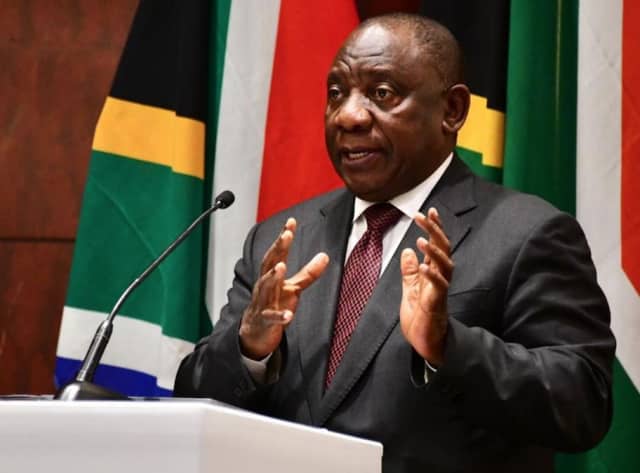President Cyril Ramaphosa has assured South Africans that government is hard at work to safeguard the integrity and effectiveness of the police service.
The President made these remarks in his weekly newsletter to the nation, just a day after announcing the establishment of a commission of inquiry to investigate serious allegations made by SAPS KwaZulu-Natal Provincial Commissioner, Lieutenant General Nhlanhla Mkhwanazi.
“We have taken this decisive step because we are determined that the important work that has been done to rebuild our law enforcement agencies and security services should not be compromised.
“It is necessary that we establish the facts through an independent, credible and thorough process so that we can safeguard public confidence in the police service. This is particularly important as we seek to put the era of state capture behind us,” the President said.
The commission of inquiry, to be chaired by Acting Deputy Chief Justice Mbuyiseli Madlanga, will investigate allegations made by General Mkhwanazi that the Minister of Police and others had colluded to interfere with police investigations.
The commission will investigate allegations relating to the infiltration of law enforcement, intelligence and associated institutions within the criminal justice system by criminal syndicates.
Among the allegations that the commission may investigate are the facilitation of organised crime; suppression or manipulation of investigations; inducement into criminal actions by law enforcement leadership; commission of any other criminal offences and intimidation, victimisation or targeted removal of whistleblowers or officials resisting criminal influence.
“The commission will investigate the role of current or former senior officials in certain institutions who may have aided or abetted the alleged criminal activity; failed to act on credible intelligence or internal warnings; or benefited financially or politically from a syndicate’s operations,” the President said.
Institutions under scrutiny include the South African Police Service, National Prosecuting Authority, State Security Agency, the Judiciary and Magistracy, and the metropolitan police departments of Johannesburg, Ekurhuleni and Tshwane.
The commission will also investigate whether any members of the National Executive responsible for the criminal justice system, were complicit, aided and abetted, or participated in the acts mentioned above.
The commission will be asked to report on the effectiveness or failure of oversight mechanisms, and the adequacy of current legislation, policies and institutional arrangements in preventing such infiltration.
It will make findings and recommendations for criminal prosecutions, disciplinary actions and institutional reform.
Once established, the commission shall consider prima facie evidence relating to the involvement of individuals currently employed within law enforcement or intelligence agencies.
Where appropriate, the commission must make recommendations on the employment status of such officials, including whether they should be suspended pending the outcome of further investigations.
The commission will also be empowered to refer matters for immediate criminal investigation and urgent decisions on prosecution, taking into account the nature of the allegations and evidence the commission will uncover.
In order for the commission to execute its functions effectively, the President decided to put the Minister of Police Senzo Mchunu on a leave of absence with immediate effect. He said the Minister has undertaken to give his full cooperation to the commission to enable it to do its work.
In his place, the President has appointed Professor Firoz Cachalia as Acting Minister of Police. Cachalia is currently a professor of law at the University of the Witwatersrand and is the chairperson of the National Anti-Corruption Advisory Council. He previously served as an MEC of Community Safety in Gauteng.
President Ramaphosa emphasised that the commission is being established against the backdrop of significant progress in rebuilding and strengthening the country’s law enforcement agencies and security services.
In recent years, the South African Police Service, the Special Investigating Unit, the Asset Forfeiture Unit and other bodies have been making important inroads in the fight against organised crime and corruption.
“It is essential that we maintain this momentum and that we intensify this work. We will ensure that the SAPS and other law enforcement agencies continue to function without hindrance as the commission undertakes its work,” the President said.
He called on all members of the law enforcement agencies and security services to remain steadfast in upholding the rule of law and adhering to their code of conduct.
“I call on all South Africans to support the commission in its work and, where appropriate, to provide any information or assistance the commission may require.
“In establishing this Commission of Inquiry, we are affirming our commitment to the rule of law, to transparency and accountability, and to building a South Africa in which all people are safe and secure,” he said. – SAnews.gov.za

